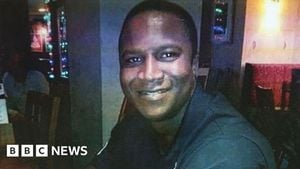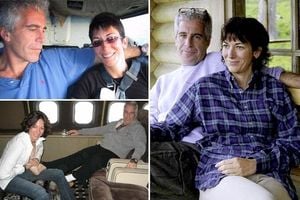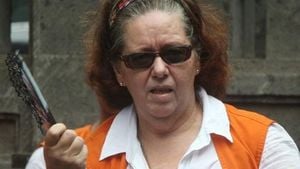Former Defence Minister and Liberal Party stalwart Kevin Andrews has died at the age of 69. Andrews died peacefully overnight with his wife Margie by his side, according to family statements shared by former Prime Minister Tony Abbott on social media.
"We are deeply proud of his service to our country, our local community and his party, yet shattered by his death after a year-long battle with cancer," the family stated. They described him as devoted to his country, family, and faith, living a full life of service. They also revealed Andrews was actively working on several projects, including his memoirs, which they hope to publish posthumously.
The federal politician represented the blue-ribbon seat of Menzies in Melbourne from 1991 until the 2022 election, holding prominent cabinet roles under both the John Howard and Tony Abbott governments. He served as Minister for Ageing, Minister for Employment and Workplace Relations, and Minister for Immigration and Citizenship, among others, and was known for his dedication to conservative causes.
Former special forces captain Keith Wolahan, who defeated Andrews for preselection for Menzies, expressed his sadness. "Kevin was a man of unwavering principle and conviction, whose dedication to his country, his faith, his family, and his community defined his life," Wolahan said. He added, "While much will rightly be said of Kevin's significant contributions to Parliament, it is his role as a devoted husband and loving father, which stands above all. His family was the heart of his life, and their loss is one shared by all who knew him."
Tributes began pouring in for the esteemed minister. Prime Minister Anthony Albanese referred to him as "both personable and respectful," stating, "Kevin Andrew was someone who had strong views but always put them forward politely. He was respected across the parliament." Albanese has extended an offer for Andrews’ family to have a state funeral.
Opposition Leader Peter Dutton noted Andrews as a Liberal Party stalwart and praised his intellect and service. "He was also a prolific writer, publishing many books on varied subjects from liberalism to family values, and even cycling, which was one of his passions," Dutton remarked.
Former Prime Minister Malcolm Turnbull shared his thoughts, calling Andrews "a champion for his faith and conservative values." Turnbull emphasized the importance of remembering Andrews' strength of convictions, even if some might disagree with them.
Born in Gippsland, Victoria, Andrews went on to study law at Monash University and the University of Melbourne before entering politics. He worked as an associate to Sir James Gobbo at the Supreme Court of Victoria and later became a barrister. He made his entry to the House of Representatives after winning the Menzies seat during the 1991 by-election, going on to hold it for over three decades.
Andrews became influential when he introduced the Andrews Bill of 1996, which aimed to restrict the rights of the ACT and Northern Territory concerning euthanasia laws. The legislation shaped debates on assisted dying until it was repealed last year.
Throughout his political career, Andrews faced both commendation and opposition. While he advocated for legislation like the controversial WorkChoices, which aimed to unify national workplace relations laws, such initiatives were pivotal during his tenure and contributed to the subsequent coalition electoral defeat.
A devout Catholic, Andrews was known for opposing abortion, same-sex marriage, and stem-cell research. His family, including his wife Margaret whom he married in 1979, stood at the core of his life. His final speech noted his motivation for entering politics was driven by a need to acknowledge family concerns within government policies.
Colleagues and friends remembered him as decent, honest, and caring. Former Health Minister Greg Hunt expressed sorrow upon hearing of Andrews' passing, stating, "He loved his community, his country, and above all else, his family."
The political legacy left by Kevin Andrews is already casting long shadows among his peers and across the political aisle. Keith Wolahan reflected on the significant contributions Andrews made to both the parliament and the nation, emphasizing his unwavering principles will inspire former colleagues and new leaders alike.
Even opponents found respect for Andrews. Former Labor leader Bill Shorten reflected on their differing views, acknowledging Andrews as someone whose values were clear and steadfast. "He always fought for what he believed and served fiercely," he stated.
Andrews' passing has not only left behind political legacies but also the memories of his dedication to his family, faith, and commitment to serving the Australian people faithfully. He has truly lived up to the ideals he advocated throughout his life, leaving behind both admiration and mourning across the political spectrum.



